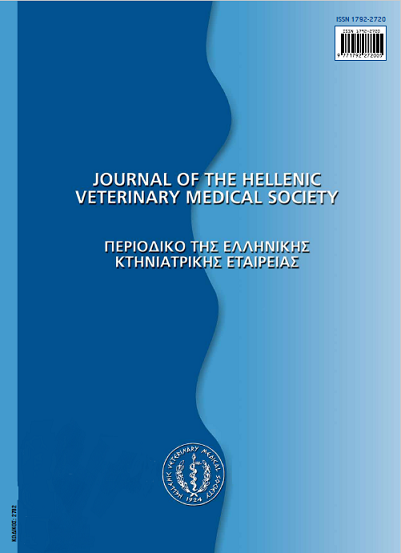Effects of intensity and duration of quantitative restriction of feed on broiler performance
Abstract
This study was carried out to evaluate the effects of physical feed restriction method with different intensity and duration on broiler performance. One hundred and fifty Ross-breed 308 male broiler chicks in a completely randomized design were divided into five experimental treatments. The treatments included physical limitations by 25% or 50% of recommended amount on feed of broilers in two periods of 7 or 14 days. One control group was used fed ad libitum. Each limitation’s severity level was applied in τηρεε replications of 10 birds. All experimental treatments before and after the limitation period until slaughter (day 42) were fed ad libitum. The results showed that in total period broilers under the physical limitation of feed had significantly lower feed intake than controls (P < 0.05). In this research, methods and levels of physical restriction intensity and duration of feed had no significant effect on body weight for the whole experimental period. Methods and levels of food restriction severity and duration had significant effect on feed efficiency (P < 0.05).
Article Details
- Zitationsvorschlag
-
JAHANPOUR, H., SEIDAVI, A., & QOTBI, A. A. (2017). Effects of intensity and duration of quantitative restriction of feed on broiler performance. Journal of the Hellenic Veterinary Medical Society, 65(2), 83–98. https://doi.org/10.12681/jhvms.15519
- Ausgabe
- Bd. 65 Nr. 2 (2014)
- Rubrik
- Research Articles
Authors who publish with this journal agree to the following terms:
· Authors retain copyright and grant the journal right of first publication with the work simultaneously licensed under a Creative Commons Attribution Non-Commercial License that allows others to share the work with an acknowledgement of the work's authorship and initial publication in this journal.
· Authors are able to enter into separate, additional contractual arrangements for the non-exclusive distribution of the journal's published version of the work (e.g. post it to an institutional repository or publish it in a book), with an acknowledgement of its initial publication in this journal.
· Authors are permitted and encouraged to post their work online (preferably in institutional repositories or on their website) prior to and during the submission process, as it can lead to productive exchanges, as well as earlier and greater citation of published work.



